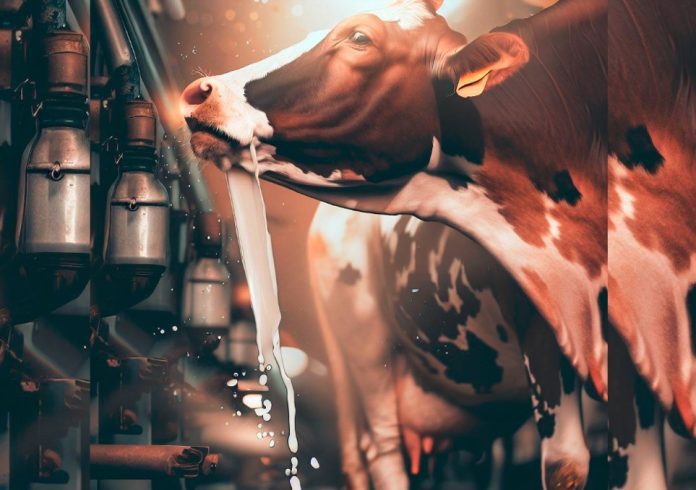News in brief: The Nigerian government has approved a national dairy policy to promote self-sufficiency in milk production and improve the welfare of farmers.
The federal government of Nigeria has approved a national dairy policy to encourage backward integration and improve farmers’ welfare.
Although details of what the policy entails are scarce, several news reports, quoting Dr. Mohammed Abubakar, the Minister of Agriculture and Rural Development, have highlighted its intended benefits. For one, it should reduce conflict between farmers and herders. Also, it is expected to ensure stability and sustainability of the dairy sector, which will lead to increased investments, jobs and wealth for Nigerians.
What is Nigeria’s national dairy policy?
First mentioned about a year ago, the new national dairy policy aims to cut milk importation. The scheme would support technology advancement by adopting the National Agricultural Technology and Innovation Plan (NATIP).
It is not clear what will become of the central bank of Nigeria’s (CBN) restriction on milk imports, which it imposed back in 2019. The apex financial institution had claimed that the country imports between $1.2 billion and $1.5 billion worth of milk every year. Its plan to slow that down was ‘to restrict sale of forex for the importation of milk from the Nigerian foreign exchange market’.
However, a couple of months later, it gave rights to six dairy companies to carry on importing milk. All of these companies, except Integrated Dairies Limited, were international brands operating in Nigeria like FrieslandCampina, Coca-Cola’s Chi, TG Arla, Promasidor, and Nestle.
What will be the effect of the milk policy?
The CBN’s move has not really made a dent on the import bill as sources maintain that the import bill is still trending in the same range. Instead, what has happened is inflation, as milk prices, along with that of other food items, have gone up.
The government’s policy may be more effective. Abubakar mentioned financial empowerment plans for livestock farmers and hygienic milk production and processing facilities, which were about 13 in Northern states as of when this article was published.
Nigeria plans to produce 1.6 billion liters of milk every year under the new policy. As of 2021, this article claims that the production output was still a bit closer to 516 million liters, which is 32%. So, the idea is to raise milk production by 68%.
As the agric minister rightly points out, the problem with dairy production in Nigeria includes the reliance on traditional pastoral system. He says about 95% of the country’s ruminant production comes from this source. However, it is not an effective system because it does not allow the animals reach optimal production if they have to forage for any food and water they can find by themselves.
Between the production, inadequate collection centers, and processing; there is a lot to consider before the country will hit self-sufficiency in its milk need. We anticipate a deeper dive into the policy when it is available.



